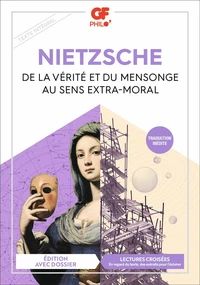Of The Twilight of the Idols, Nietzsche says in Ecce Homo: "If anyone should desire to obtain a rapid sketch of how everything before my time was standing on its head, he should begin reading me in this book. That which is called 'Idols' on the title-page is simply the old truth that has been believed in hitherto. In plain English, The Twilight of the Idols means that the old truth is on its last legs." Certain it is that, for a rapid survey of the whole of Nietzsche's doctrine, no book, save perhaps the section entitled "Of Old and New Tables" in Thus Spake Zarathustra, could be of more real value than The Twilight of the Idols.
Here Nietzsche is quite at his best. He is ripe for the marvellous feat of the transvaluation of all values. Nowhere is his language - that marvellous weapon which in his hand became at once so supple and so murderous - more forcible and more condensed. Nowhere are his thoughts more profound. But all this does not by any means imply that this book is the easiest of Nietzsche's works. On the contrary, I very much fear that unless the reader is well prepared, not only in Nietzscheism, but also in the habit of grappling with uncommon and elusive problems, a good deal of the contents of this work will tend rather to confuse than to enlighten him in regard to what Nietzsche actually wishes to make clear in these pages.
Of The Twilight of the Idols, Nietzsche says in Ecce Homo: "If anyone should desire to obtain a rapid sketch of how everything before my time was standing on its head, he should begin reading me in this book. That which is called 'Idols' on the title-page is simply the old truth that has been believed in hitherto. In plain English, The Twilight of the Idols means that the old truth is on its last legs." Certain it is that, for a rapid survey of the whole of Nietzsche's doctrine, no book, save perhaps the section entitled "Of Old and New Tables" in Thus Spake Zarathustra, could be of more real value than The Twilight of the Idols.
Here Nietzsche is quite at his best. He is ripe for the marvellous feat of the transvaluation of all values. Nowhere is his language - that marvellous weapon which in his hand became at once so supple and so murderous - more forcible and more condensed. Nowhere are his thoughts more profound. But all this does not by any means imply that this book is the easiest of Nietzsche's works. On the contrary, I very much fear that unless the reader is well prepared, not only in Nietzscheism, but also in the habit of grappling with uncommon and elusive problems, a good deal of the contents of this work will tend rather to confuse than to enlighten him in regard to what Nietzsche actually wishes to make clear in these pages.























